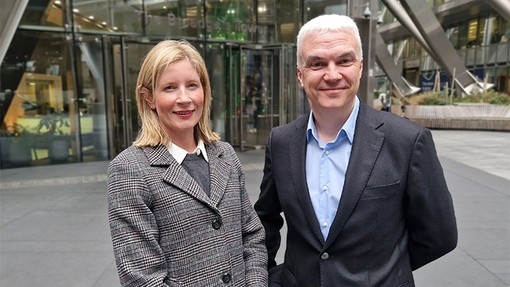WhatsApp messages – who is in control?

Details
A recent High Court case looked at the disclosure of non-party WhatsApp messages, in an unusual decision under the Disclosure Pilot Scheme. View further information on this.
In Pipia -v- BGEO Group Ltd (formerly known as BGEO Group plc) [2021] EWHC 86 (Comm) [20 January 2021], the claimant sought disclosure of various emails, WhatsApp messages and other communications from two individuals said to be central to the case (both of whom the defendant intended to call as witnesses) but who were not actually current employees of the defendant or parties to the action.
Disclosure Pilot Scheme – summary
- The Disclosure Pilot Scheme (DPS) operates in the Business and Property Courts and has been extended to run until 31 December 2021.
- Under the DPS, the court can order one or more of models A to E of ‘extended disclosure’.
- In additional to extended disclosure, the DPS also allows the court to make an order for disclosure of specific documents by making an additional order for disclosure of specific documents or narrow classes of documents relating to a particular issue for disclosure.
- To obtain an order for specific disclosure the party applying must satisfy the court that varying the original order for extended disclosure is ‘necessary for the just disposal of the proceedings and is reasonable and proportionate (as defined in paragraph 6.4)’ (PD 51U.18.2).
- Under the DPS, parties are required to disclose documents that are or were in its control by producing a copy or stating why a copy will not be produced. The DPS defines ‘control’ as including documents (a) that are or were in a party’s physical possession; (b) in respect of which a party has or has had a right to possession; or (c) in respect of which a party has or has had a right to inspect or take copies.
Facts
The proceedings related to allegations that certain transactions carried out by the defendant between 2011 and 2016 had unlawfully deprived the claimant of a Georgian fertiliser plant. The defendant (an English registered company) is the ultimate parent holding company of two Georgian registered companies. The claimant sought disclosure from the defendant of various emails, WhatsApp messages and other communications of two individuals (employees of the subsidiary companies) that the defendant planned to call as witnesses to give evidence at trial.
Judgment – disclosure ordered
The defendant was ordered to disclose various documents/messages one of the witnesses’ mobile phone but did not consider it appropriate to make an order for disclosure of the second witness’s phone or for further emails sought. What factors did the judge apply in reaching her decision?
- Both witnesses were outside of the English court’s jurisdiction.
- The first witness had, at one stage, been an employee of the defendant but the second had not.
- The mobile phones containing the messages were said to be the personal property of the witnesses and not owned by the defendant or any of its subsidiaries.
- The judge accepted that the messages were likely to give the court an unguarded picture of the witnesses’ actions and may assist as to his intentions and this was relevant given the allegations of bad faith.
The first witness had previously had a service contract with the defendant that included provisions authorising the defendant and any agent instructed by it to ‘access any program or data held on any computer used by [first witness] in the course of performing his duties of employment… regardless of whether the program or data [was] related to the executive duties of employment)’ (clause 2.9). Further, the first witness was required (on termination or at any time on request) to immediately return any or all property belonging to the defendant in his control, including, but not limited to, documents or other records containing confidential information, to permanently destroy all confidential information in documents or other records that did not belong to the defendant or any associated company, and, if requested, to disclose passwords he created or controlled regarding documents or records belonging to the defendant. Accordingly, the judge found that the first witness’s mobile phone was in the control of the defendant.
A different position applied regarding the second witness, as he had not had a contractual relationship with the defendant, so his phone was not within the control of the defendant.
Comments
The case is a useful reminder of the issues around the ‘control’ of documents and indeed the definition of what a document actually is – in this case WhatsApp messages. Undoubtedly, given the nature of the allegations centred on allegations of bad faith, the immediacy of the WhatsApp communications would give a good feel for the intentions and motivations of those involved and would be important to the findings in the case.
For further information on disclosure issues, please contact Moya Clifford.





